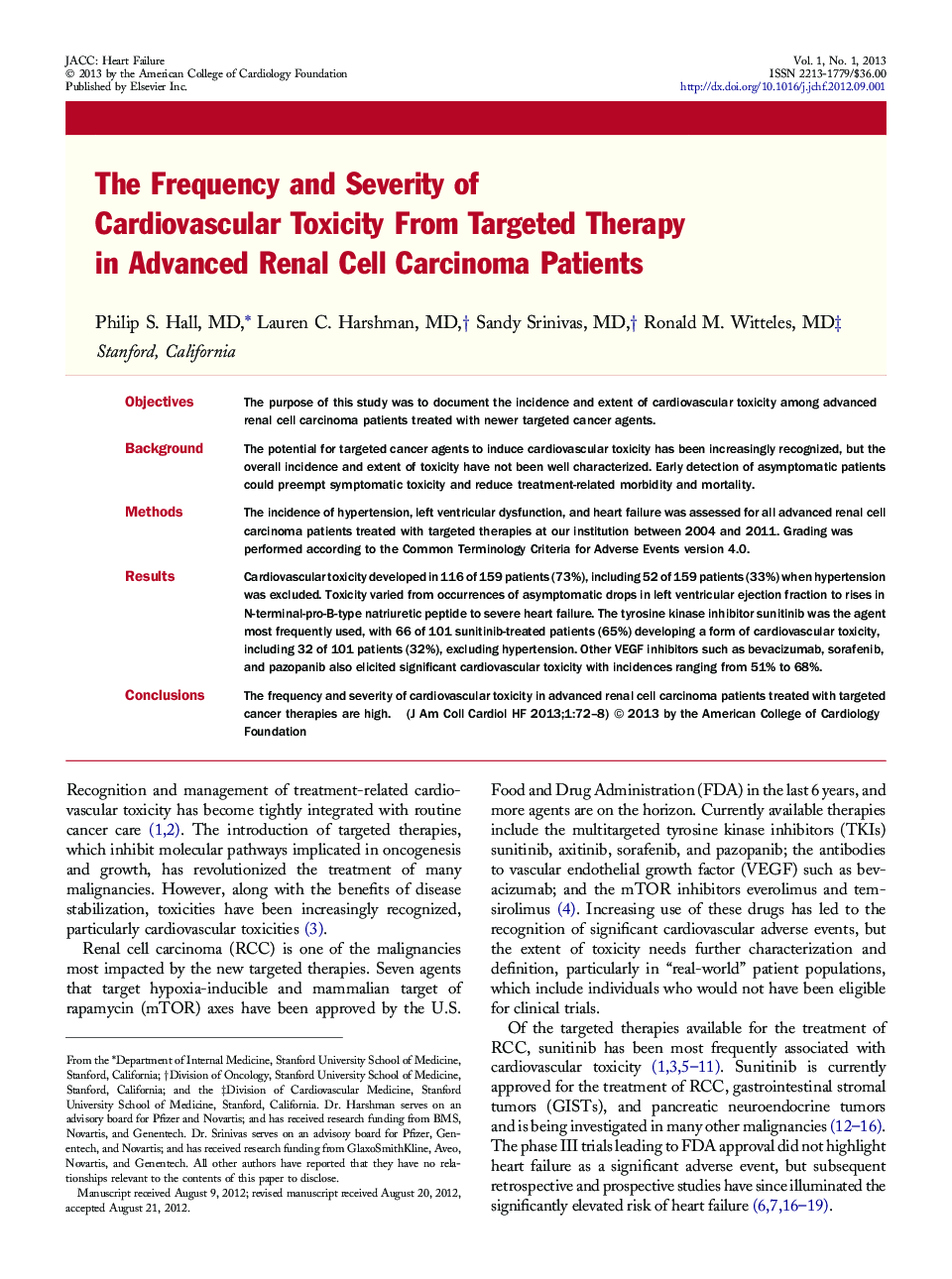| Article ID | Journal | Published Year | Pages | File Type |
|---|---|---|---|---|
| 2942709 | JACC: Heart Failure | 2013 | 7 Pages |
ObjectivesThe purpose of this study was to document the incidence and extent of cardiovascular toxicity among advanced renal cell carcinoma patients treated with newer targeted cancer agents.BackgroundThe potential for targeted cancer agents to induce cardiovascular toxicity has been increasingly recognized, but the overall incidence and extent of toxicity have not been well characterized. Early detection of asymptomatic patients could preempt symptomatic toxicity and reduce treatment-related morbidity and mortality.MethodsThe incidence of hypertension, left ventricular dysfunction, and heart failure was assessed for all advanced renal cell carcinoma patients treated with targeted therapies at our institution between 2004 and 2011. Grading was performed according to the Common Terminology Criteria for Adverse Events version 4.0.ResultsCardiovascular toxicity developed in 116 of 159 patients (73%), including 52 of 159 patients (33%) when hypertension was excluded. Toxicity varied from occurrences of asymptomatic drops in left ventricular ejection fraction to rises in N-terminal-pro-B-type natriuretic peptide to severe heart failure. The tyrosine kinase inhibitor sunitinib was the agent most frequently used, with 66 of 101 sunitinib-treated patients (65%) developing a form of cardiovascular toxicity, including 32 of 101 patients (32%), excluding hypertension. Other VEGF inhibitors such as bevacizumab, sorafenib, and pazopanib also elicited significant cardiovascular toxicity with incidences ranging from 51% to 68%.ConclusionsThe frequency and severity of cardiovascular toxicity in advanced renal cell carcinoma patients treated with targeted cancer therapies are high.
